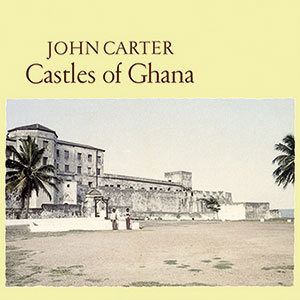John Carter: Castles of Ghana
Author: Stuart Nicholson
View record and artist detailsRecord and Artist Details
Musicians: |
Andrew Cyrille (d) |
Label: |
Gramavision 18–8603–1 |
Magazine Review Date: |
May/2022 |
Media Format: |
LP, CD |
RecordDate: |
Rec. November 1985 |
John Carter was born in Fort Worth, Texas, just six months before his friend, Ornette Coleman. A prodigy, he graduated from high school at 15, gained an MA in music at 19 and a BA at 26. Despite a lifetime spent teaching in the American public school system, first at Fort Worth, then Los Angeles, he developed a parallel career in jazz, and is best known for his association with Bobby Bradford (who preceded Don Cherry in Coleman’s quintet).
A clarinet virtuoso, with a clear, even tone from chalumeau to a full altissimo range, he recorded Night Fire (Black Saint) in 1980, depicting a visitation by the Klu Klux Kan on a black family. This was effectively a precursor to the ambitious Roots and Folklore: Episodes in the Development of American Folk Music cycle comprising five suites, each represented by a separate album — Dauwhe, Castles of Ghana, Dance of the Love Ghosts, Fields and Shadow on a Wall.
Castles of Ghana opens with the title track. A Cyrille tom-tom introduction, brass cadences and Carter’s flutter-tongue interlude leads into an ensemble passage of Ellingtonian depth that belies such a small head count. All solo over a tonal centre rather than specific changes before collective polyphony that expresses the pain and confusion of being captured for slavery. ‘Evening Prayer’ is also based on a pedal point, a soliloquy of great depth and almost unbearable sadness. ‘The Fallen Prince’ features Powell on open horn, essaying the wounded grace of a noble warrior being swept into an alien culture. ‘Theme of Desperation’ is a duet between Carter and Jenoure that rises and falls in unusual intervals before faraway chimes of doom.
The album’s tour de force is ‘Capture’, initially featuring Carter, Carroll (a most lyrical improviser) and Ehrlich depicting a chase where escape is impossible, and capture inevitable. Then a voice intones the moving ‘Postlude’.
Carter’s writing is incisive, programatically rich and vital, possessing an insight that matches the scale of the task he set himself. Here are a series of extended compositions of depth and originality where both Carter and his soloists respond with spontaneity, a sense of self-discovery and a refreshing vitality that lie at the heart of all great jazz.

Jazzwise Full Club
- Latest print and digital issues
- Digital archive since 1997
- Download tracks from bonus compilation albums throughout the year
- Reviews Database access
From £9.08 / month
Subscribe
Jazzwise Digital Club
- Latest digital issues
- Digital archive since 1997
- Download tracks from bonus compilation albums during the year
- Reviews Database access

